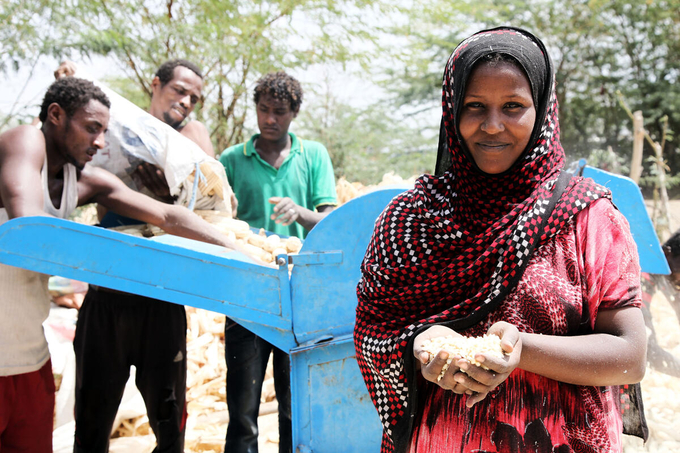November 26, 2025 | 16:10 GMT +7
November 26, 2025 | 16:10 GMT +7
Hotline: 0913.378.918
November 26, 2025 | 16:10 GMT +7
Hotline: 0913.378.918

The renewed partnership will promote better understanding and application of Codex Alimentarius international food safety standards. This includes work on enhancing mycotoxin management in maize value chains through strengthened information-shairing.
The Food and Agriculture Organization of the United Nations (FAO) and Mars, Incorporated are setting out a path to expand their existing cooperation on strengthening food safety, supporting One Health and enhancing the FAO Hand-in-Hand Initiative.
Maximo Torero, FAO’s Chief-Economist, and Dr Abigail Stevenson, Chief Science Officer for Mars signed a Memorandum of Understanding (MoU) to promote better understanding and application of Codex Alimentarius international food safety standards. In particular, the parties have committed to work on enhancing mycotoxin management in maize value chains through modeling approaches and strengthen information-sharing on emerging food safety threats.
FAO Chief Economist Maximo Torero said: “Strong science to support food safety decisions and strong public-private cooperation for food safety are increasingly important to ensure sustainable and resilient agrifood systems. FAO and Mars will continue to collaborate to build on work that’s already been done and demonstrate impact and concrete results.”
Dr Stevenson agreed, “At Mars we believe everyone has the right to safe food and that collaboration is essential as we work together to address food safety challenges. This is why we are delighted to extend the strategic global partnership, initiated in 2015, with the Food and Agriculture Organization (FAO) to continue working together on food safety initiatives. This is a great opportunity to share our technical knowledge and scientific expertise in mycotoxin management and develop scientific publications which help to ensure safe food for all.”
Through the agreement FAO and Mars will exchange knowledge and information to support science-based decision-making on food safety.
The MoU lays out plans for FAO and Mars to cooperate for developing guidance for increased uptake of the Codex standards and codes of practices by the private sector, for instance, regarding Food Allergen Management by food operators, and identification of best practices for mycotoxin control and mitigation in maize value chains.
FAO and Mars will also continue to collaborate on the analysis and discussion on emerging food safety issues, new methods and technologies and new trends in research and development that might have impacts on food safety.
The MoU has been developed within the context of the FAO Strategy for the Private Sector Engagement (2021-2025), according to which private sector partnerships can offer innovative tools, resources, knowledge and technologies that are critical for reinforcing our impact on the ground.
The joint activities with Mars will boost FAO’s capacity for early warning, risk reduction and management of health risks and enhance scientific and technological capacity to develop innovative food safety models and enhance approaches for managing food safety risks across value chains.
FAO and Mars share common objectives with regards to strengthening food safety to enhance food security through capacity building, sharing knowledge and information and development of innovative, science-based approaches. Mars is a leading global family-owned business with a diverse portfolio of quality snacking, food and pet care products and services. FAO has a long-standing relationship with Mars. Through previous agreements, both partners engaged to address Antimicrobial Resistance (AMR) and enhance food safety initiatives.
(FAO)

(VAN) A new study reveals how the simultaneous effects of ocean acidification, salinity and loss of oxygen are making the world more fragile.

(VAN) Hopes are growing that the creation of the first 3D turkey gut model could be a turning point in the battle against the virulent blackhead disease.

(VAN) Tyson, America’s biggest meat supplier, plans to shutter one of its largest beef processing plants as the industry continues to struggle with low cattle supplies and political pressure from Washington.

(VAN) New FAO study shows how digital solutions are empowering farmers and fishers to prevent losses and build resilient agrifood systems.

(VAN) Brazil's COP30 presidency pushed through a compromise climate deal on Saturday that would boost finance for poor nations coping with global warming but that omitted any mention of the fossil fuels driving it.

(VAN) Poultry farmers in the UK have been warned that they could face one of the worst winters yet for bird flu.

(VAN) Prices of main-crop paddy have risen sharply, with jasmine rice hitting 16,100 baht per tonne — the highest level in years.